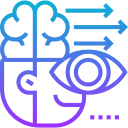Future of Artificial Intelligence: What 2025 Holds
Next-Generation Neural Networks
Next-generation neural networks will be marked by their increased depth, efficiency, and adaptability. By 2025, advances in areas like transformer architectures, generative models, and neuro-symbolic networks will enable AI to understand and generate language, images, and data with unprecedented sophistication. These neural networks will not only process information more efficiently but also learn from smaller datasets and transfer knowledge across different tasks. This leap in capability will support applications ranging from hyper-accurate natural language processing to real-time video synthesis and complex decision-making, significantly broadening the scope of what AI can achieve.
Quantum Computing and AI Synergy
The convergence of quantum computing and artificial intelligence will introduce a paradigm shift in problem-solving. Quantum computers promise to process vast amounts of data at speeds unthinkable with classical machines, unlocking new horizons for AI modeling, optimization, and simulation. In 2025, early-stage integrations between quantum processors and machine learning algorithms will begin to tackle complex scientific, medical, and financial problems. This synergy holds the promise of accelerating drug discovery, optimizing supply chains, and advancing climate modeling, all through AI systems that continually learn and adapt in real time with unprecedented efficiency.
Autonomous AI Systems
By 2025, autonomous AI systems will reach new levels of independence and reliability, revolutionizing how machines interact with the world and make decisions. These systems—spanning from self-driving vehicles to industrial robots and intelligent personal assistants—will employ advanced perception, reasoning, and planning capabilities. Their ability to learn from the environment and iteratively improve performance will reduce human intervention and enable safer, more adaptive machines in both physical and digital domains. The maturation of autonomous AI will not only increase operational efficiency but also fundamentally change transportation, logistics, manufacturing, and even home environments.
AI's Expansion into Daily Life
AI-powered personal assistants will become significantly more advanced, context-aware, and proactive by 2025, elevating convenience, productivity, and lifestyle management. These intelligent agents won’t just manage calendars or answer queries—they will anticipate needs, personalize suggestions, and interconnect with smart-home devices to create environments that adapt dynamically to user preferences and routines. Smart environments, infused with sensors and adaptive AI, will automate comfort, security, and energy usage, learning continuously from user interactions to provide an ever-more tailored living experience. This deep integration will redefine the essence of modern comfort and daily assistance.
Economic and Workplace Transformations
Redefining Workforce Roles
By 2025, the division of labor between humans and machines will be undergoing radical transformation. Routine, repetitive tasks across industries will increasingly fall under the domain of automation, freeing humans to focus on creative, strategic, and interpersonal aspects of work. However, this shift will necessitate widespread upskilling and reskilling initiatives as organizations look to prepare employees for more dynamic roles involving oversight, ethical judgment, and technological collaboration. Emphasis on human creativity and emotional intelligence will become critical as AI augments traditional professions and creates entirely new types of employment.
AI-Driven Business Models
Businesses will be compelled to rethink strategies and operations as AI takes on a central role in shaping markets and customer interactions. By 2025, data-centric and platform-based models will dominate, leveraging predictive analytics, personalized marketing, and automated decision-making. AI will empower startups and established enterprises alike to identify new opportunities, streamline processes, and launch innovative products at unprecedented speeds. The competitive landscape will increasingly favor agility, with businesses that effectively integrate AI gaining significant advantages in efficiency, scalability, and customer engagement.
Productivity and Innovation Boom
Artificial intelligence will be a primary catalyst for an unprecedented surge in productivity and innovation across industries. Intelligent automation will reduce operational costs, minimize human error, and increase throughput, while AI-powered research tools will accelerate scientific discovery and product development cycles. In creative industries, AI will serve as both a collaborator and an inspiration, generating ideas, automating design, and facilitating new artistic forms. As companies harness these tools, they will unlock innovative business models and deliver value on a scale once thought impossible, ushering in a new era of human-AI collaboration.
